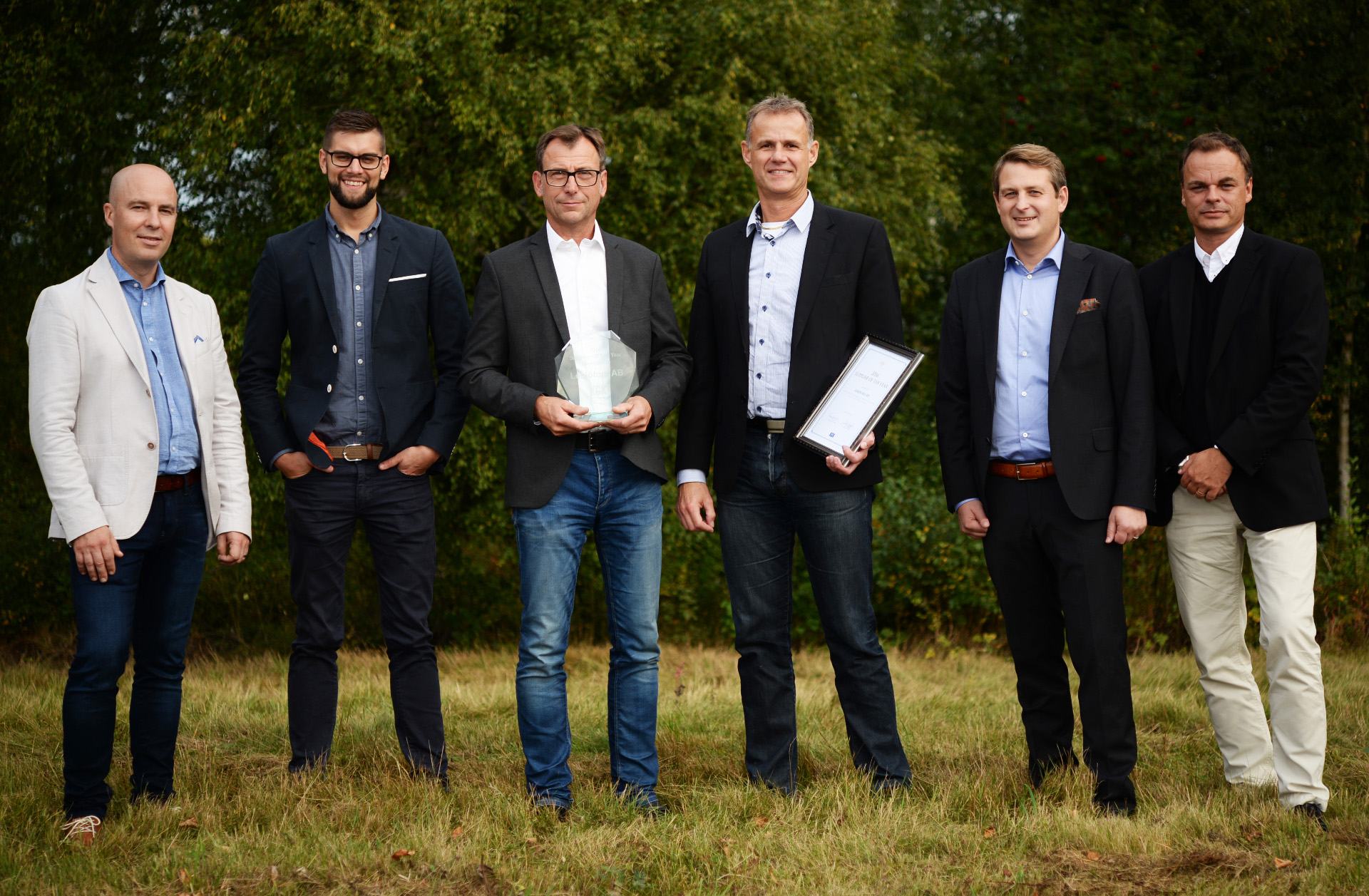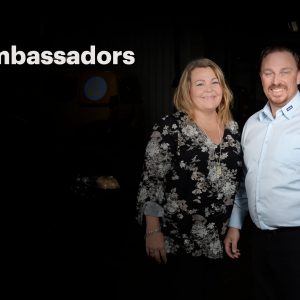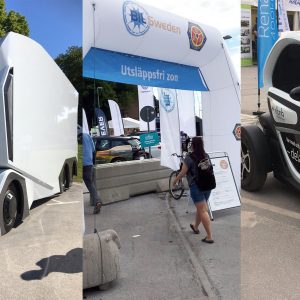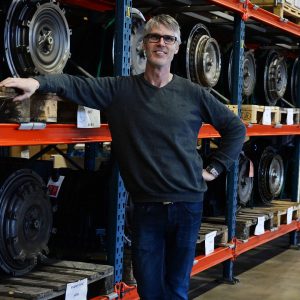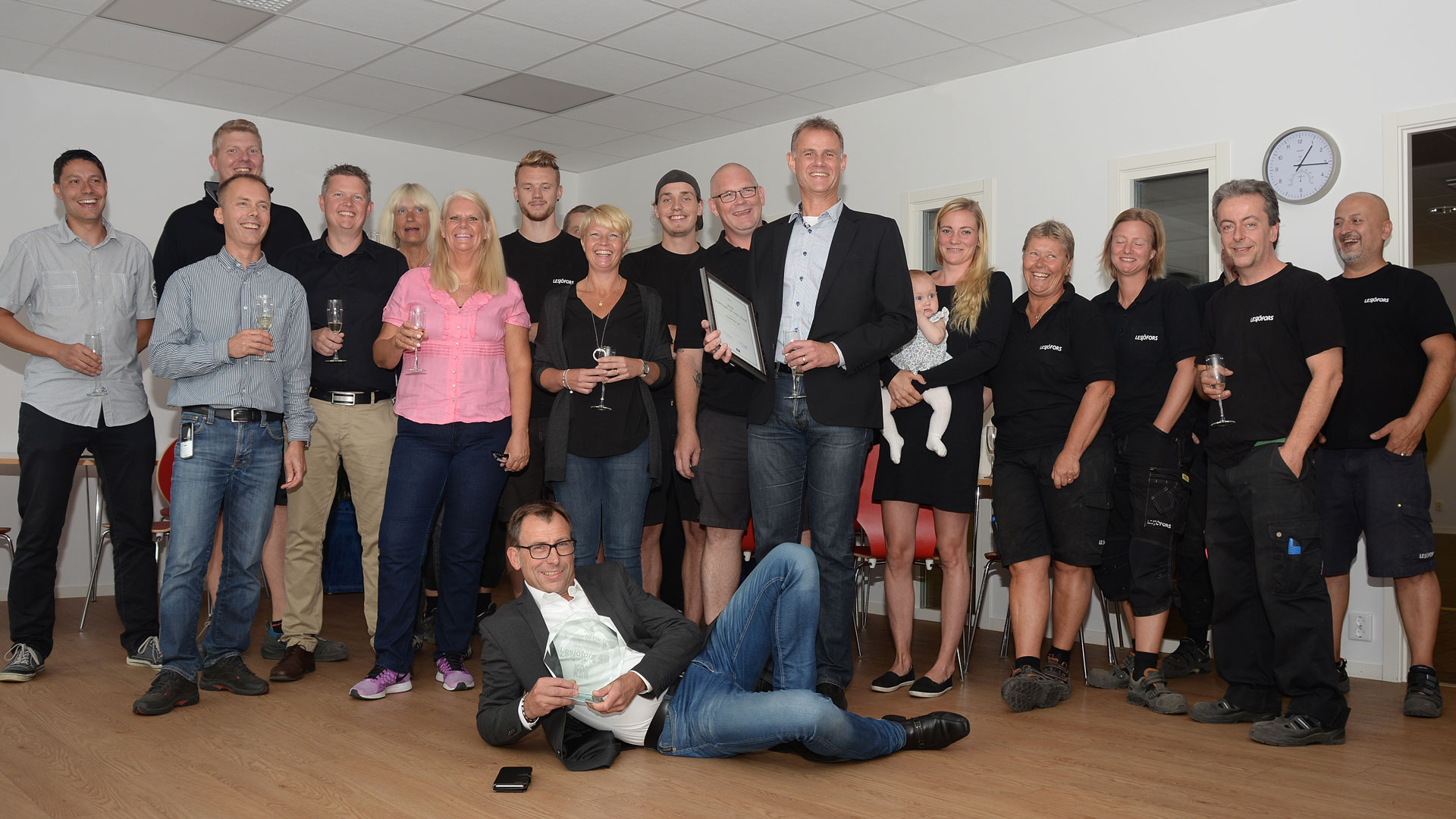
Lesjöfors Automotive named Supplier of the Year 2016
When KG Knutsson AB for the second time handed out its “Supplier of the Year” award, the title went to a classic pioneer of Swedish industry. Lesjöfors Automotive AB took home the trophy for its high level of service and delivery accuracy.
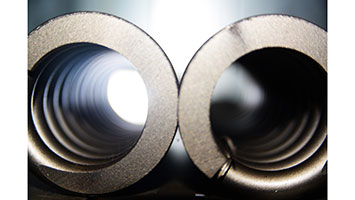
Lesjöfors AB can trace its roots back to 1675, when a charter was granted for the establishment of a hammer forge by the Lesjöfors river. But the Värmland company’s modern history really began in the mid-90s, when its factory tragically fell victim to a fire. In order to save the company’s manufacturing, help was sought from the main competitor, Kilen Industri AB in Strängnäs, who gave over their third shift for Lesjöfors manufacturing. The entire workforce temporarily moved to Strängnäs to make production possible.
Company management and the owners resolved to rebuild the factory from scratch, and one year later, one of Europe’s most cutting-edge spring factories stood ready for operation in Lesjöfors. The company later acquired Kilen Industri AB and the two competitors combined to become one large operator. All production was transferred to Lesjöfors and logistics and administration gradually found their way to Växjö.
The year preceding the fire, Lesjöfors AB had in fact acquired the Småland company Rally Elit, which became Lesjöfors Automotive AB. A couple of people in the company today were a part of Rally Elit, one of whom is Christer Stark.
The Lesjöfors Group, with a total of around 1,500 employees, is now owned by Beijer Alma. The company is one of Europe’s leading manufacturers of spring products and has 21 factories around the globe. Lesjöfors Automotive AB itself, in Växjö, has 22 permanent employees.
September in Växjö, and indeed in large parts of Sweden, meant a taste of British summer. And on Thursday, 8 September, the sun shone literally outside and metaphorically in the offices and warehouse of Lesjöfors Automotive AB. That very Thursday saw a visit from representatives of KG Knutsson AB, who were on site to present the award for Supplier of the Year.
“We founded the award because we had come to recognise the growing importance of logistics as a competitive factor in the industry. This was a way for us to help our suppliers realise the importance and potential advantages of implementing uniform systems and methodologies within logistics,” said Niklas Nordén, Supply Chain Manager at KGK.
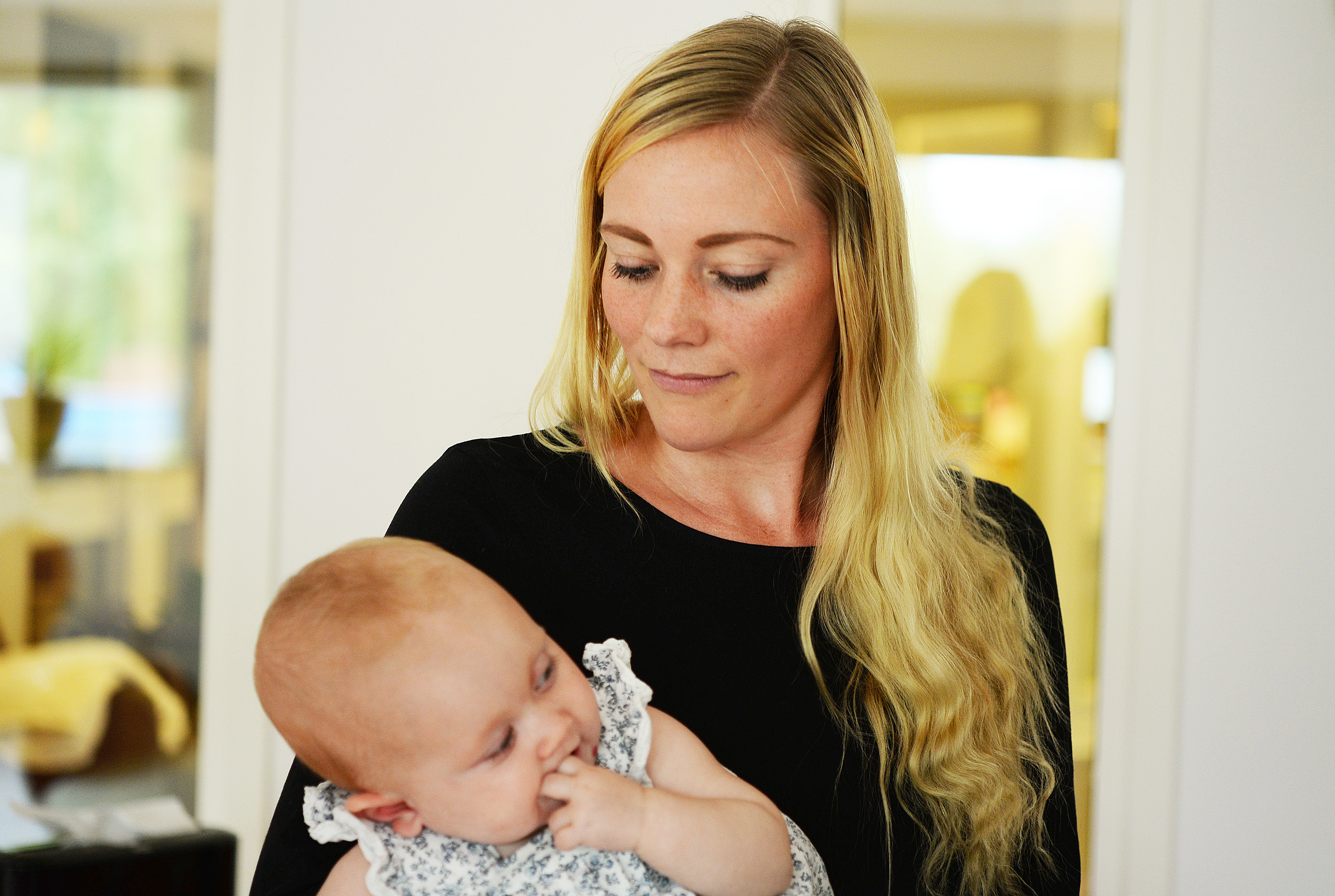

Following the conclusion of the ceremony, Niklas Nordén and Tom Forsell, Business Developer at KGK, took the opportunity to engage in a short discussion with some key personnel at Lesjöfors Automotive in Växjö. There was a lot of talk about logistics, the future of the company, service levels and wire gauges, so strap in, this is going to get as winding as the spirals Lesjöfors produce!
What was it that led to Lesjöfors Automotive AB receiving the trophy this year?
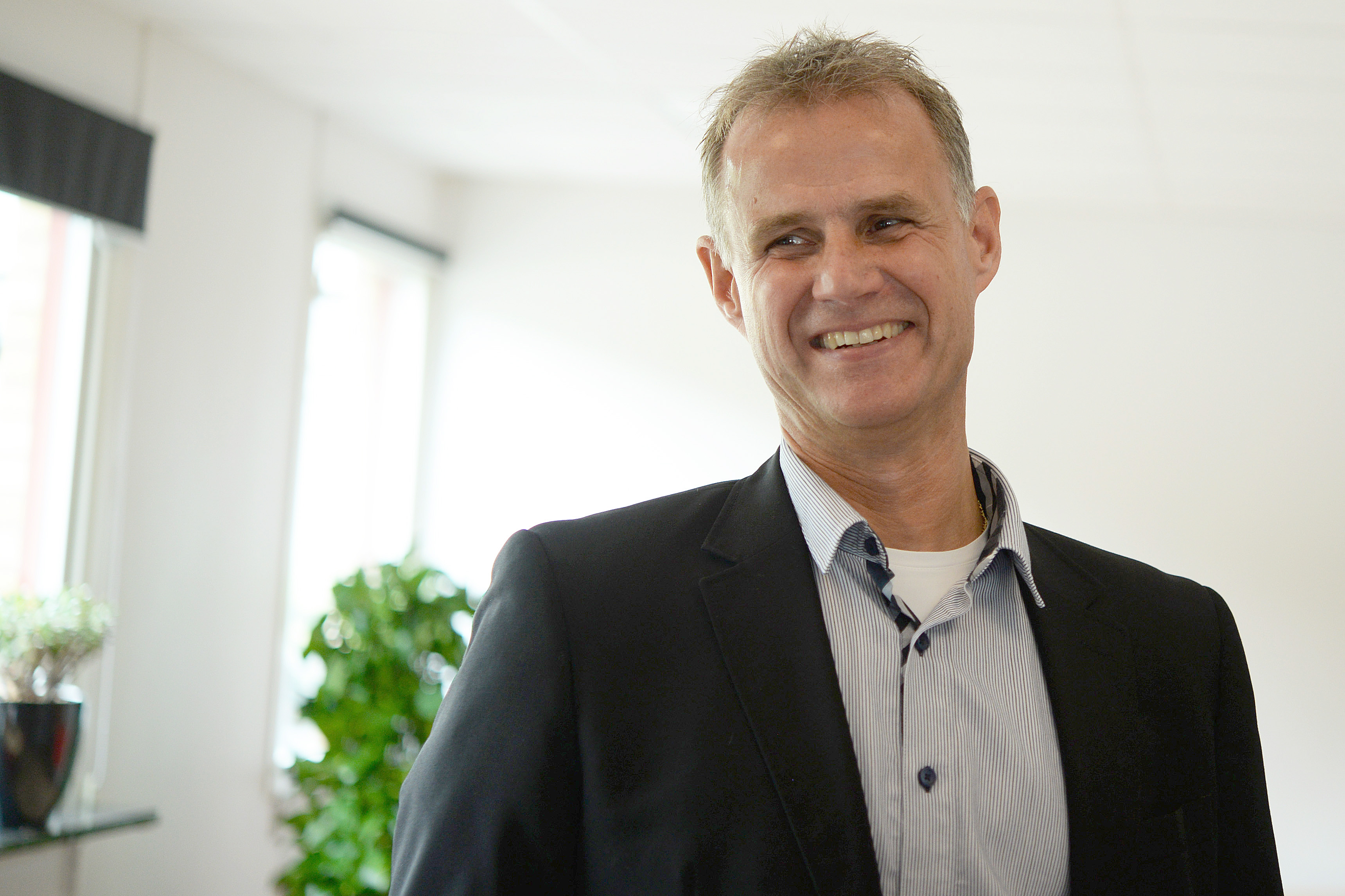
Håkan Möller, Managing Director: It is largely founded on the fact that the entire group is focused on the customer and on ensuring a high level of service, and how the importance of this has long permeated the entire company. This aligned with the fact that we’ve been able to work with the same personnel over a long period of time. They are all important factors. I think that a lot of people flourish in the company culture that we have in place. We have a fairly flat organisational structure here in Växjö, we have a positive gang here and it’s not hard to find it enjoyable.
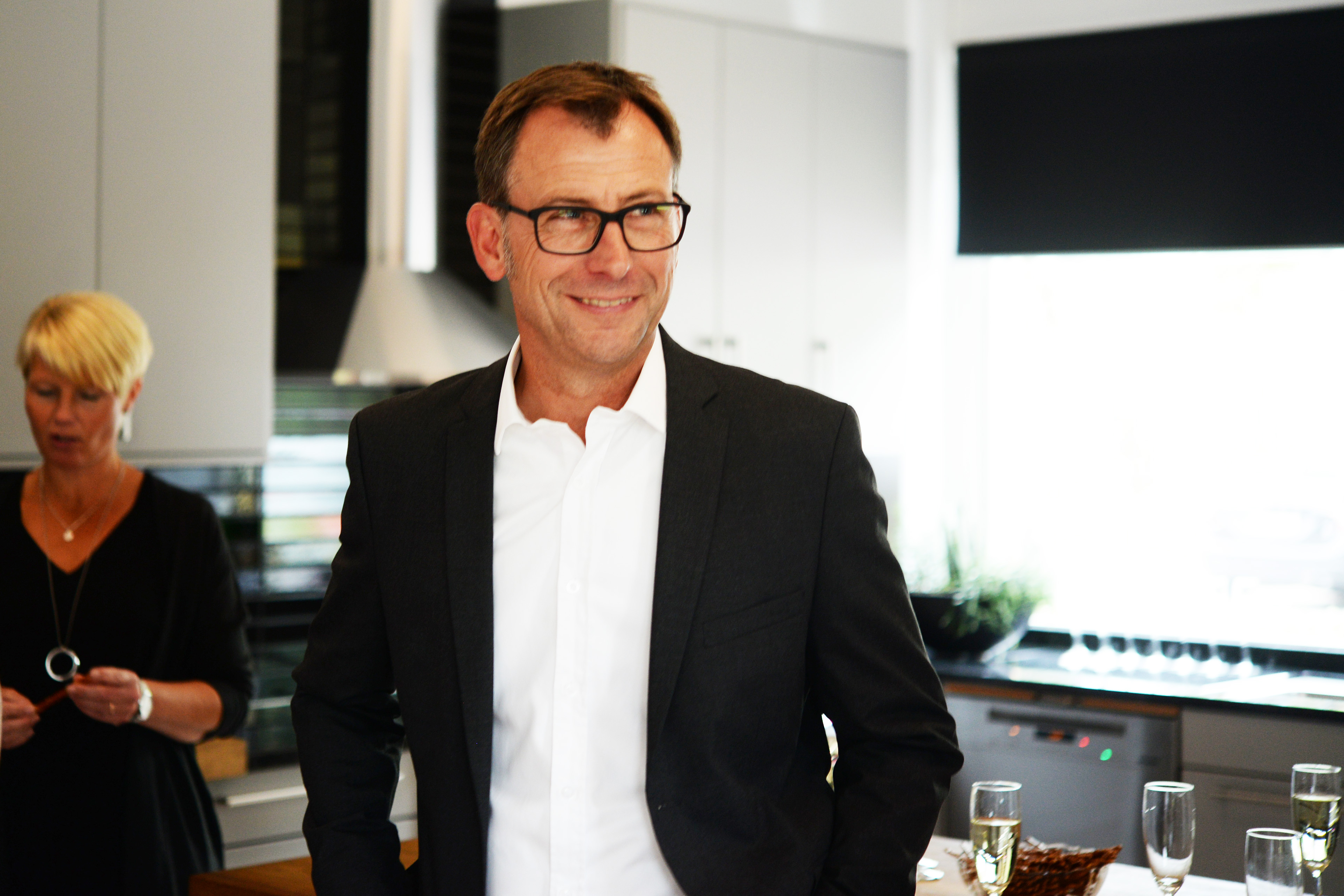
Christer Stark, Sales Manager: We decided early on what type of customer we wanted to have, and that we would maintain a high level of service. We have stuck to that plan. We have to have items in stock, otherwise someone else will make the sale and get a toenail in the door. Then before you know it they’ve got the whole foot in there! We have to maintain excellence to keep our position on the market.
Of course, the level of service is a factor and we know that we are good there.
Those last few percentage points cost. The input required to maintain such a high level of service is exponential.
Håkan Möller: We have a very large range as well, I think that counts for a lot. No-one else even comes near what we can offer. And we can’t forget the effects of our in-house production. We have control over the entire chain.
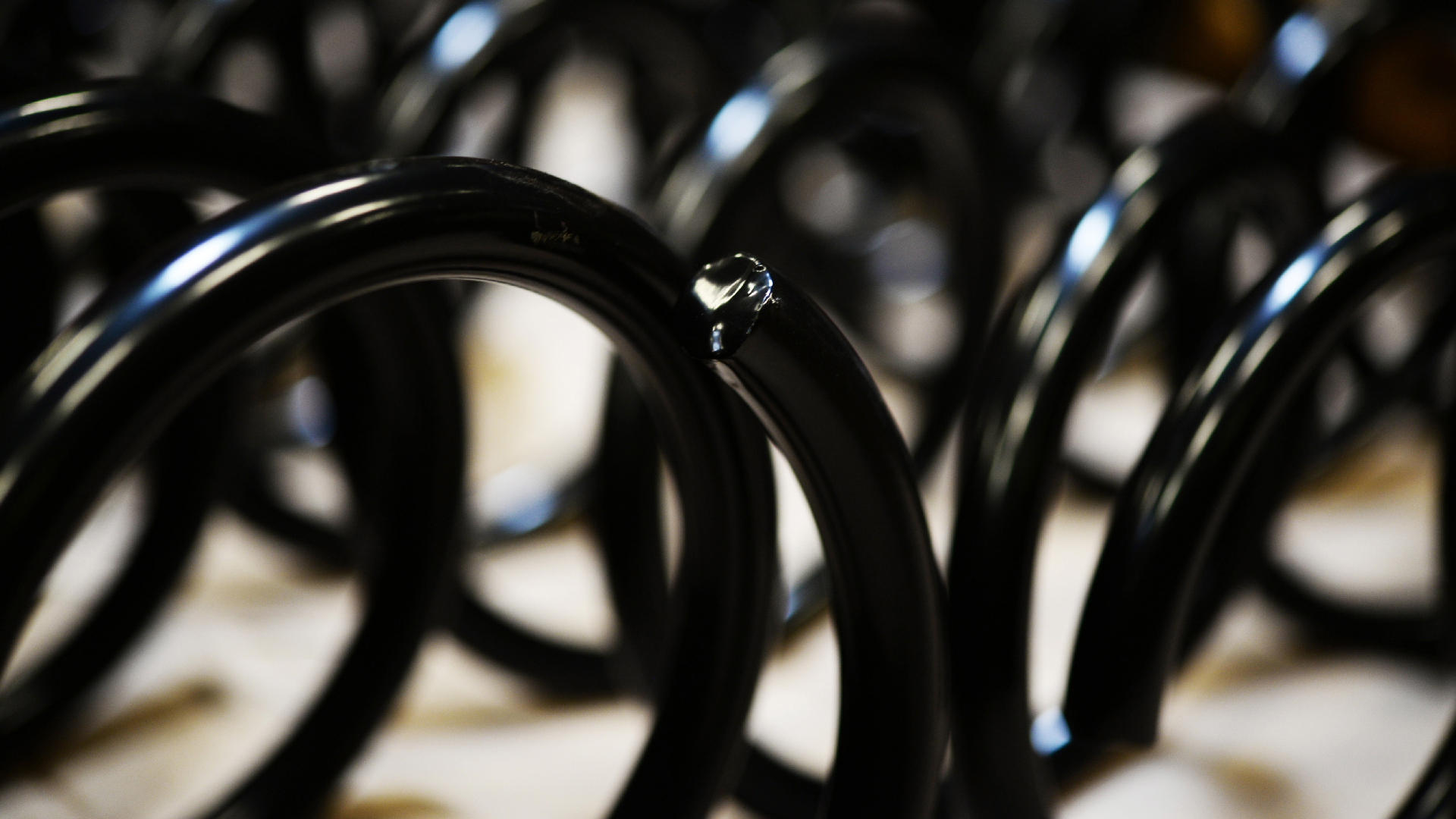
Do you “only” plan the production of all springs in Automotive, or for the whole of Lesjöfors AB?
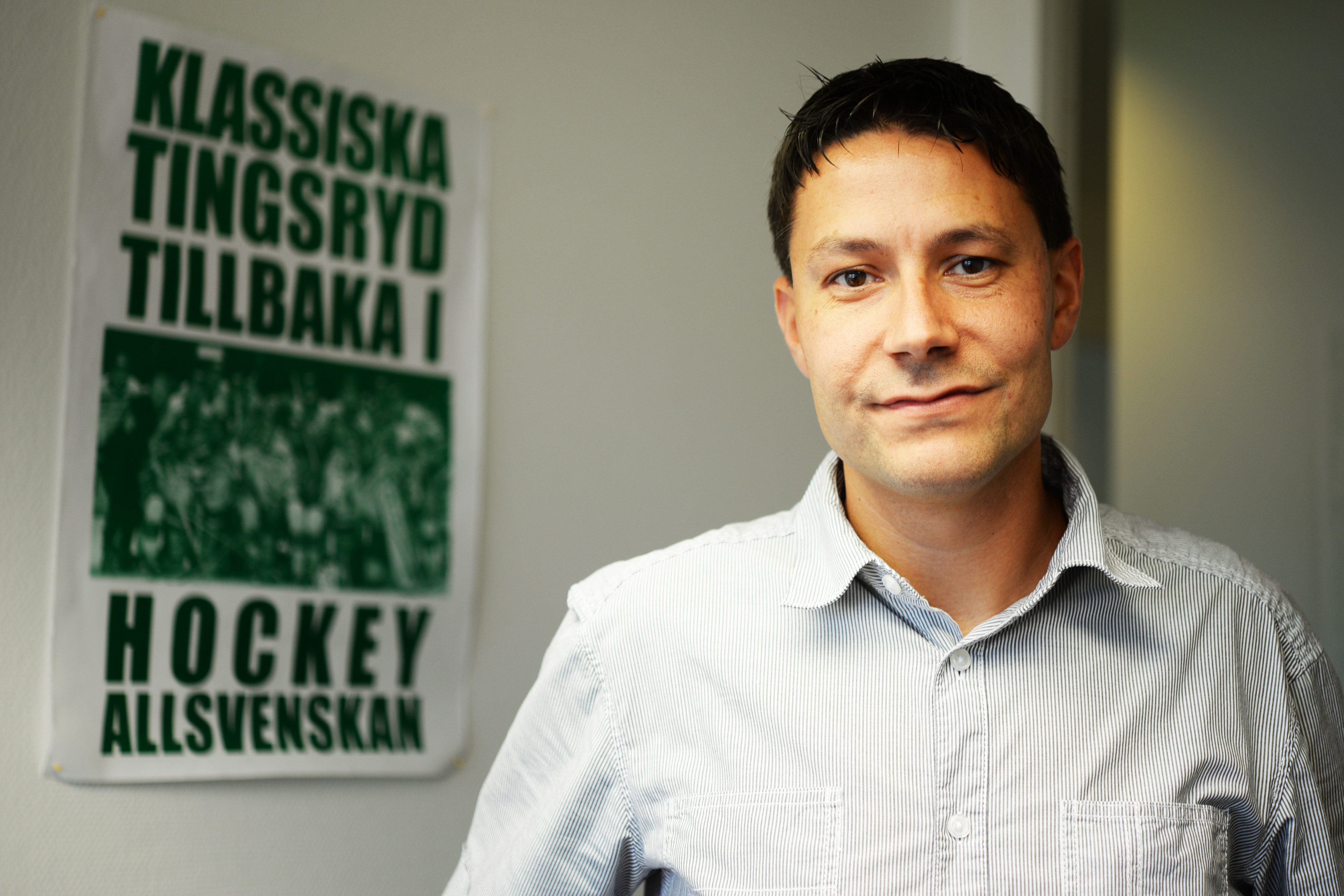
Mats Tallkvist, Production planning: It’s “only” Automotive, but we have four different supply points to satisfy – England, Germany, Russia and here in Växjö. Plus we have some extra storage in the Lesjöfors factory too, a small buffer.
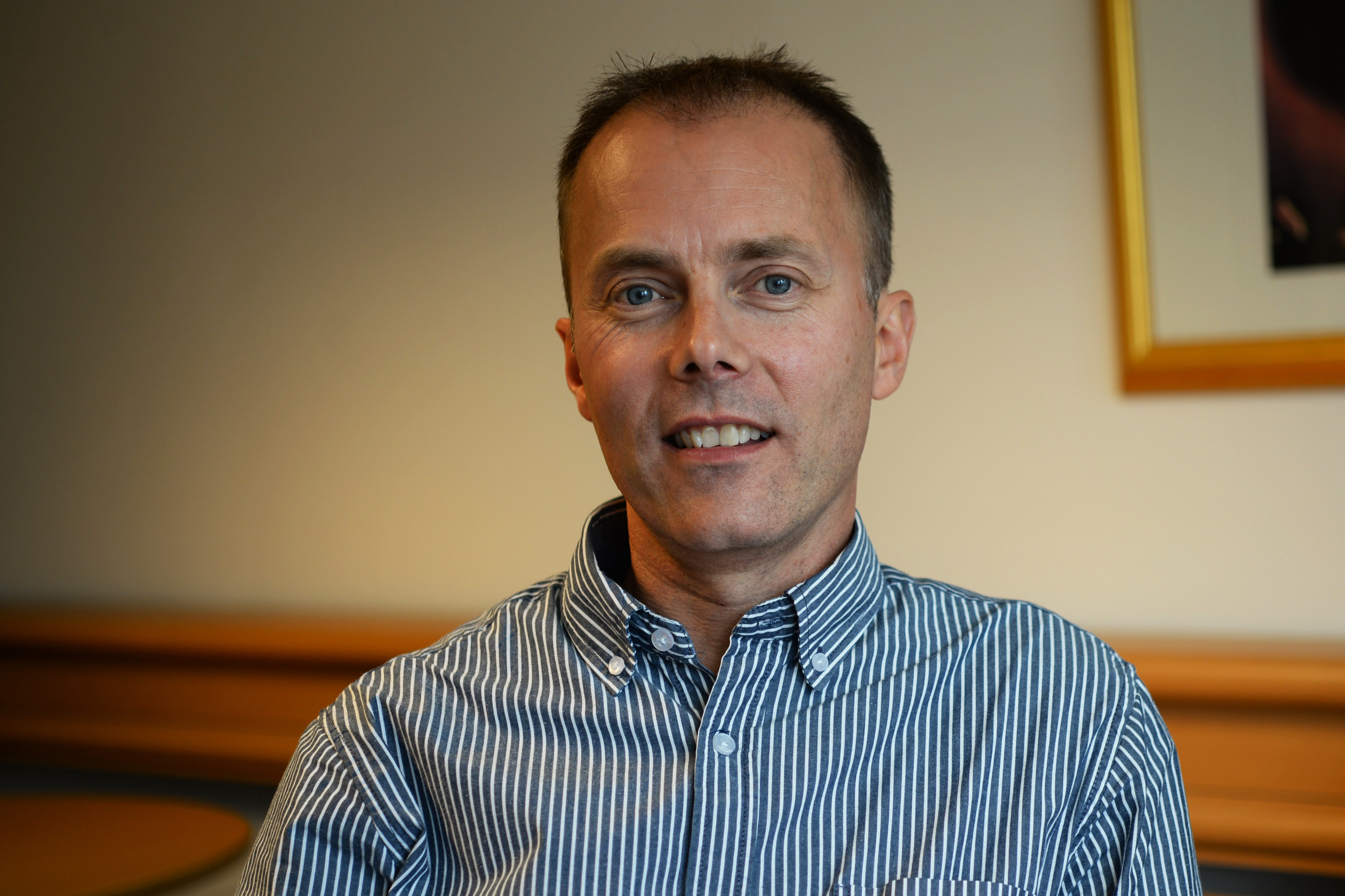
Bo Magnusson, Logistics: We have gas spring production in Latvia that we’re also planning for. They have different lead times. Our warehouse in Russia takes a longer time and is more complicated to fill up, as it is stricter with weight and some other things over there. We have a target service level of 98%, and we’re often even above that, but it is certainly a high target that we have set.
Is there any ambition to spread the Swedish company culture to the other countries?
Håkan Möller: That’s how we try to work. The last company in was Russia, and when we recruited the CEO it was crucial to us to identify the right person. There were two aspects to it; we wanted to have the right feeling from a social perspective, and we also wanted someone who could align with our way of thinking. And we really succeeded there. We didn’t have so much trouble with Germany and England, there are more cultural similarities.
Bo Magnusson: We have visited Russia and provided quite a lot of assistance, both in the establishment of the entity and in moving packaging machines and those sort of things around. We have given them training in how best to load pallets, the best way to wrap them in plastic, everything!
How many items numbers are there currently in the product range?
Mats Tallkvist: 5,000 chassis springs and around 1,700 gas springs. It’s a bit of a tightrope walk when it comes to manufacturing, and it’s difficult to find the right balance because we have quite a long tail, so to speak. We try to manufacture as few times as possible, but at the same time we do not want to see any obsolescence or surplus stocks. Some springs we manufacture just once a year.
Bo Magnusson: We’ve certainly made a handful of errors of judgment, but we are good at obsolescence, we’ve been able to keep it very low. It’s always difficult to assess for new item numbers. We buy specific data from every country for every model, and use this to make a qualified assessment. After the first batch we then have a bit of history to go on, which makes it easier, even if things can still change very suddenly. Sometimes an item can go from nothing to be a top seller. On the other hand, it doesn’t go as fast in the other direction, you are usually able to recognise the trend and react accordingly.
It can happen that a customer purchases a high volume of the wrong item, something which we normally see as an anomaly. “Why are they buying 50 springs for the Opel Omega all of a sudden?” In those cases we check with the customer. They have usually made an error in their order and are grateful that we’ve taken the time to check. If we had manufactured 50 instead of the 5 that they actually wanted to order, we’d end up with 45 on the shelf doing nothing.
Do you have a system for such cases, or is it a manual check?
Bo Magnusson: We have both systems support and a human input. I think that’s why we are as good as we are.
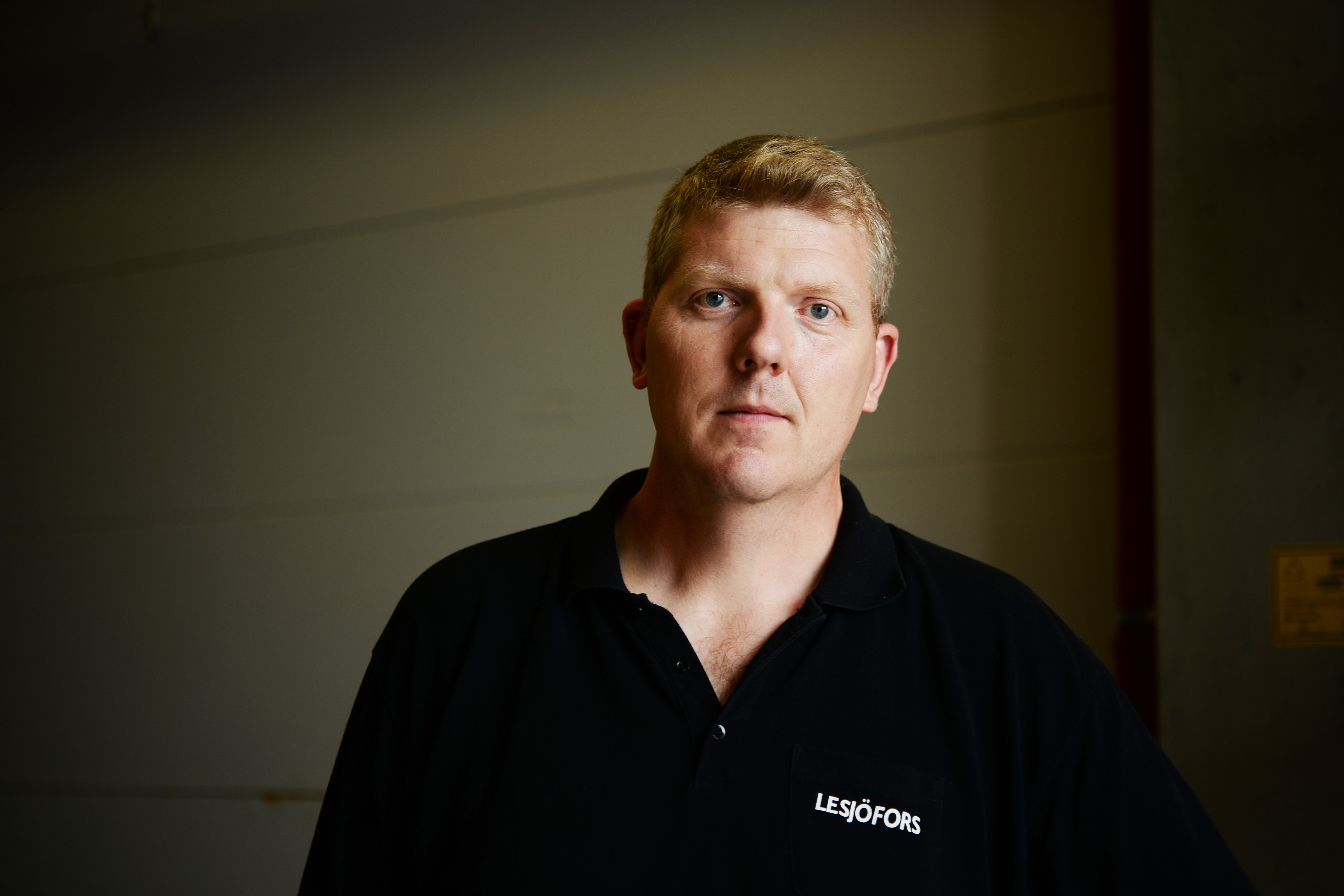
In terms of the material, how many item numbers do you buy in, is it based on the size of the wire? Are there 50 different sizes that correspond in turn to 5,000 item numbers?
Mats Tallkvist: The item number is based on the wire gauge, yes. From 8 to 16 mm, with intervals of 0.25 mm between each size, after which the increments get larger. From there on you’re talking half and whole millimetres.
Bo Magnusson: I think we have around 40-something different wire gauges.
So 40-something item numbers becomes, in turn, 5,000?
Bo Magnusson: It’s cool, isn’t it?
Mats Tallkvist: Then there are varieties within each gauge. For some we may have just one item, for others we can have up to 300 different springs. 13 mm is the most common.
Bo Magnusson: Mats knows all the gauges and item numbers off by heart if you’re interested!
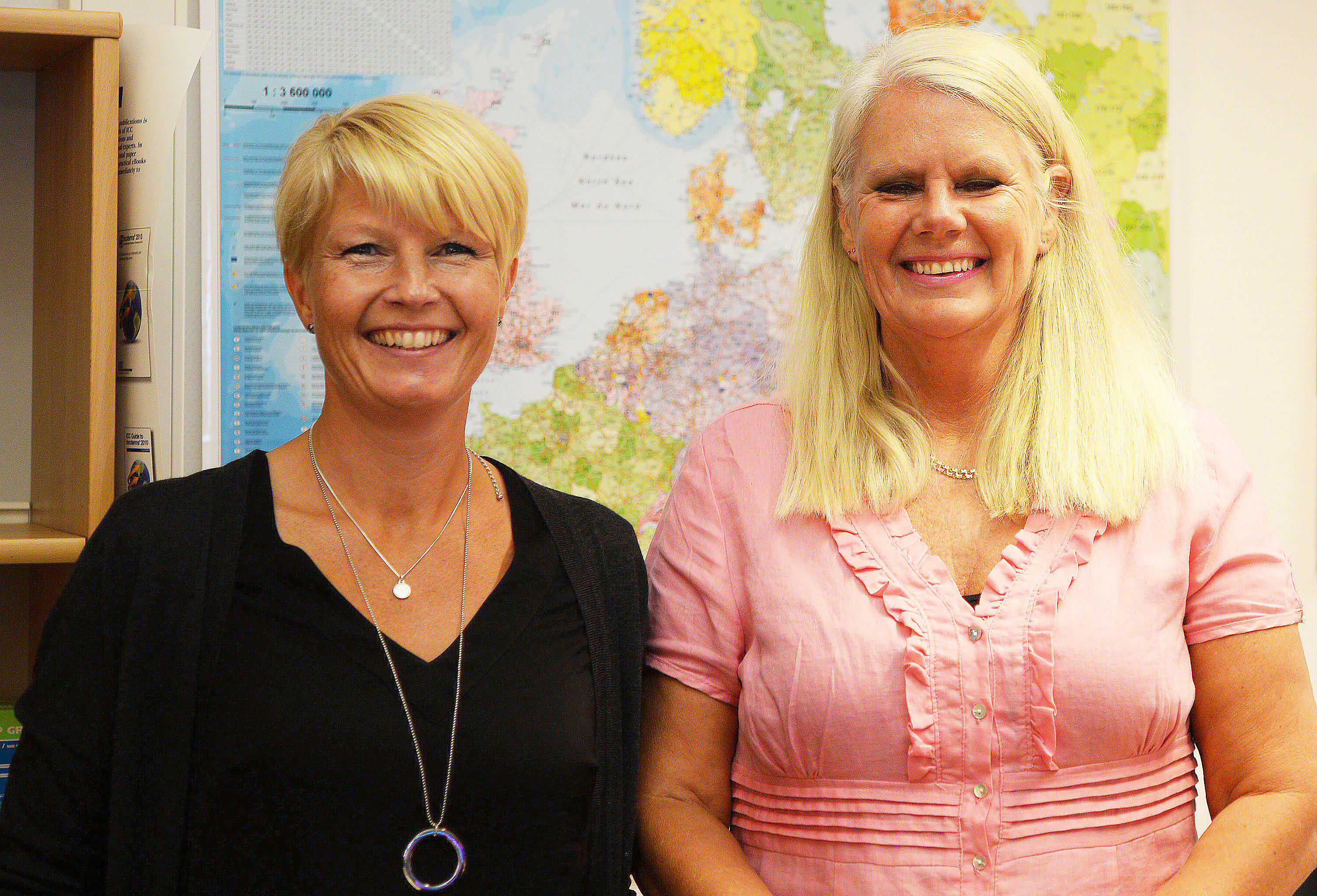
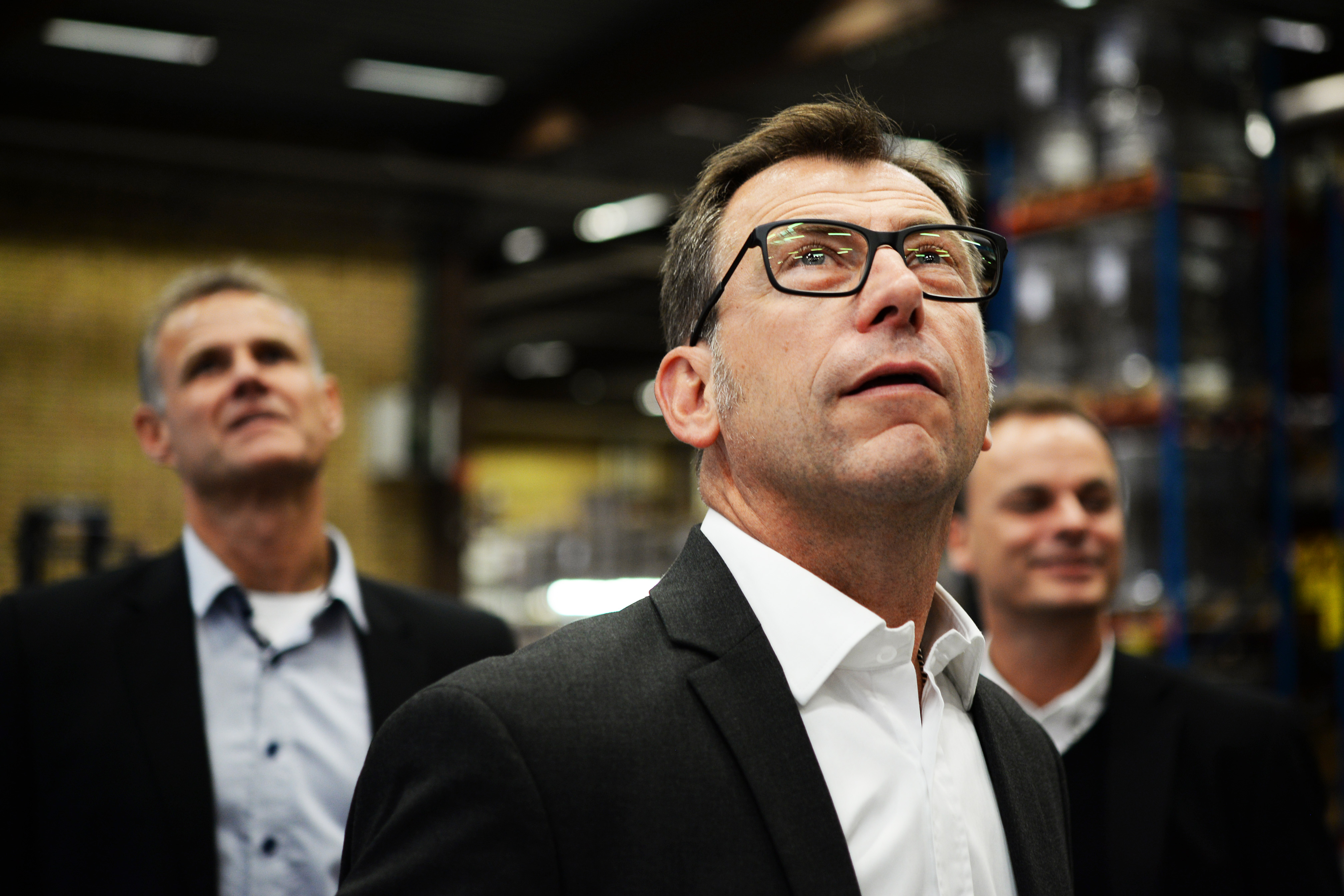
We touched on the service level earlier, 98%. Do you work actively with the inventory turnover ratio? Have you set a target?
Bo Magnusson: Yes, we turn over the inventory three times per year. We can’t set this any higher because it would impact our service level. You have to keep a certain balance in terms of inventory versus production. We have found our level, to put it simply.
Håkan Möller: Three times per year is the average for Automotive as a whole, including all of our other units. We never record any statistics for Växjö alone, as it happens. The ones we measure individually are Germany, England and Russia. They are up to five sometimes, and it has even gone higher. They benefit from the fact that we deliver very quickly to them. But looking at the overall picture, we’re at around 3.2.
Bo Magnusson: With regard to the service level, we have categorised our items into A, B, C and D. On A and B items we should be up at 100%. A D item might be very valuable to one customer as well, but any problems there do not impact nearly as many customers. Nonetheless, for that specific customer standing there with the car on the lift, it is of course extremely important. Even if they have a Mitsubishi Colt or whatever it might be…
Mats Tallkvist: …an Opel Omega…
Bo Magnusson: …or an old Amazon.
Future challenges – where will your company be in five/ten years?
Håkan Möller: I can’t imagine there’ll be any huge changes compared to how we operate today. Today there are springs in, for example, fibreglass, but this is a pretty unproven area. Steel springs are outstanding both economically and sustainably, as well as in other areas, and will be around for a long time yet.
How about market shares, do you have growth ambitions?
Christer Stark: All of the significant operators in Scandinavia are already our customers. There is no room to grow here, the more pressing risk is of us losing customers. If we look at China, that has to be a market we should be aiming for in the future. The prices will go up for the items they produce domestically. I was there together with the Swedish Trade Council at the start of the 2000s and that trip gave me the feeling that there were just too many obstacles to selling there, such as penalty duties, for example. We have lain low since then, but now there are so many more cars in the country than there used to be, so who knows…
And then the internet is a challenge for the entire industry. Lots of internet companies sell just on price and nothing else. The customer does not have the same level of security. But the companies are out there are their prices too, so in the long run there will no doubt be some sort of price harmonisation, where you as operator and the internet companies close the gap somewhat, even though KGK stands for so much more. I receive a fair few calls every month from both private individuals and workshops, “‘Hi, I’ve bought a spring but it’s not right'” “I see, where did you buy it?” Of course, it’s not one of our direct customers. “But they won’t accept a return.” Right, well I’m sorry but there’s nothing I can do. You made the choice to buy from there. You thought it would be cheaper. Wisdom lost out to cheapness.
Last, but not least, what does this award mean to Lesjöfors Automotive?
Christer Stark: It means that we now redouble our efforts so that you come back next year to give us the title once more!
